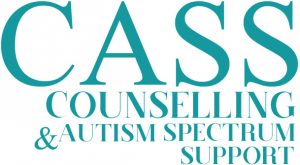Neurodiversity has its roots in science. From the scans of the brain, it has been deduced that a number of differences have been seen among kids with learning and thinking variations and their peers. Those distinctions show up in how the mind is “wired” and in its capacity to help think and to learn. “Neurodiversity is the idea that neurological differences like autism and ADHD are the result of normal, natural variation in the human genome.” (Robison, 2013)
“The term neurodiversity refers to variation in the human brain regarding sociability, learning, attention, mood and other mental functions.” (Thomas, 2011) The word was devised in 1998 by Australian Sociologist Judy Singer. ADHD, Autism, and other such variations emerge through a blend of hereditary and environmental collaboration; they are not the aftereffect of injury or disease.
The idea that individuals are normally different is significant for kids with learning and thinking variations. It will lessen the shame and the inclination that something is “off-base” with them. It will help construct certainty, confidence, resilience, and motivation. Advocates of Neurodiversity identify that neurodiverse individuals regularly have capabilities along with their shortcomings. The advocates contend for acknowledgement of qualities just as shortcomings in neurodiverse individuals, and that an assortment of neurological conditions that are presently delegated messes are better viewed as contrasts. This point is in accordance with the protocol of the Autism Rights Movement (ARM).
References:
Armstrong, Thomas (2011). The power of neurodiversity: unleashing the advantages of your differently wired brain (1st Da Capo Press paperback ed.). ISBN 9780738215242.
Austin, R. D., & Pisano, G. P. (2017, July 18). Neurodiversity Is a Competitive Advantage. Retrieved September 21, 2020, from https://hbr.org/2017/05/neurodiversity-as-a-competitive-advantage
Bailin, A. (2019, June 06). Clearing Up Some Misconceptions about Neurodiversity. Retrieved September 21, 2020, from https://blogs.scientificamerican.com/observations/clearing-up-some-misconceptions-about-neurodiversity/
Robison, J. (2013, October 07). What Is Neurodiversity? Retrieved September 21, 2020, from https://www.psychologytoday.com/us/blog/my-life-aspergers/201310/what-is-neurodiversity
Rosen, P. (2020, April 17). Neurodiversity: What You Need to Know. Retrieved September 21, 2020, from https://www.understood.org/en/friends-feelings/empowering-your-child/building-on-strengths/neurodiversity-what-you-need-to-know


